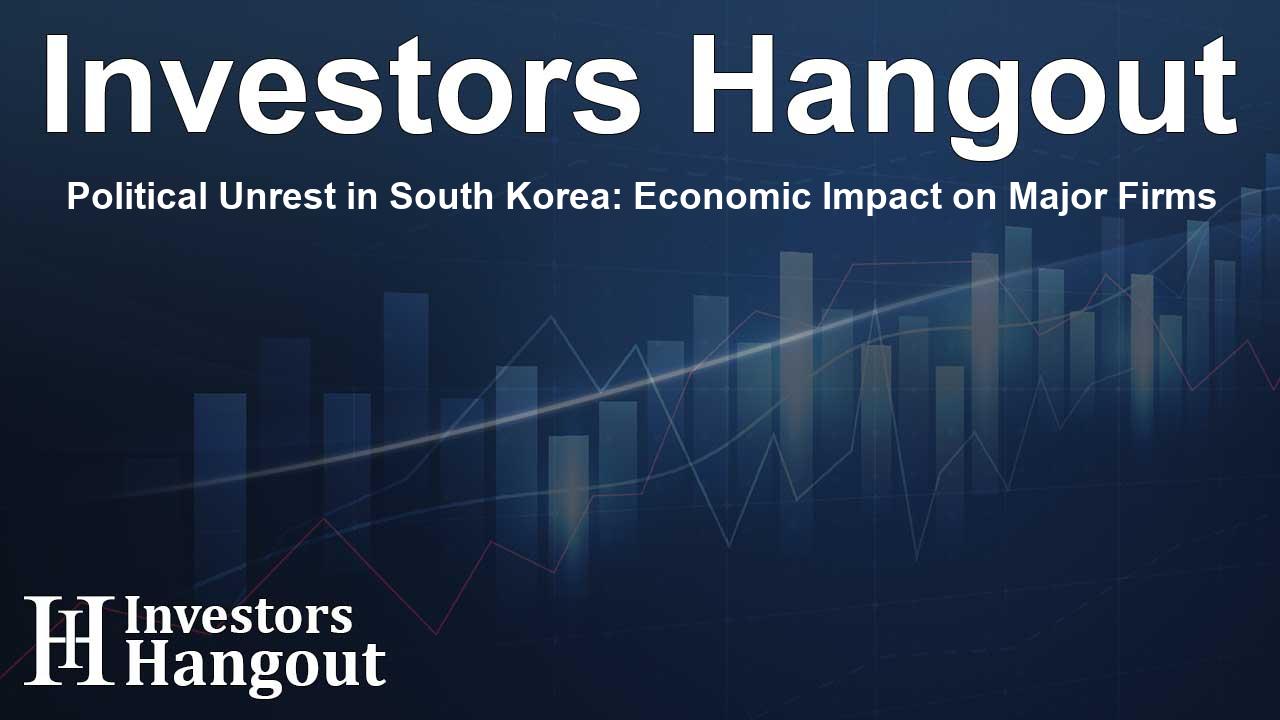Political Unrest in South Korea: Economic Impact on Major Firms

Political Turmoil in South Korea
Recent events in South Korea have escalated into a significant political crisis as impeached President Yoon Suk Yeol has defied arrest after an extended standoff with police. With over 100 South Korean law enforcement officers involved, the situation has drawn considerable national attention, reflecting the country's turbulent political landscape.
The Standoff Incident
During the confrontation involving Yoon's presidential security forces, South Korea's anti-corruption agency was ultimately forced to withdraw its officers, citing safety concerns. This unexpected withdrawal has raised questions about the authority and compliance of the impeached president.
Legal Challenges Faced by Yoon
The legal saga began when President Yoon declared martial law, which directly led to his impeachment. Following the declaration on December 3, a series of events unfolded, culminating in a court warrant for Yoon's arrest on multiple charges, including orchestrating an insurrection and abusing his power.
Government Response and Economic Forecasts
The ongoing political crisis is expected to have a substantial effect on South Korea’s economy. The Finance Ministry recently downgraded its growth forecasts, projecting a mere 2.1% growth for 2024 and 1.8% for 2025. These figures are notably lower compared to previous expectations, which indicated a more optimistic outlook for the nation.
Market Reactions and Implications
Investors are reacting to these developments with caution. For instance, the iShares MSCI South Korea ETF (EWY), which tracks large and mid-sized companies within the country, has experienced a troubling decline of over 20% in the past six months, including a 5% drop in just the last month. This downturn reflects anxiety among investors regarding the nation's political stability.
Impact on Major Companies
The ongoing political turmoil has also influenced major firms, such as Coupang, Inc. (CPNG), the largest e-commerce platform in South Korea. Since the initiation of the political crisis, Coupang's stock has dropped nearly 7%. Such declines could have ripple effects in other sectors as well, particularly in e-commerce, technology, and finance.
Looking Ahead
As South Korea navigates through this challenging period, financial analysts are closely monitoring the situation, awaiting signals of potential recovery. The government's actions regarding the leadership crisis will play a critical role in shaping economic policies moving forward.
Frequently Asked Questions
What triggered the current political crisis in South Korea?
The political crisis was triggered by President Yoon's declaration of martial law, which led to his impeachment.
How has the economy responded to the political turmoil?
The Finance Ministry has downgraded its economic growth forecasts significantly due to the ongoing crisis.
What actions have been taken against President Yoon?
A court has issued a warrant for President Yoon's arrest on multiple charges, including insurrection and abuse of power.
What is the current status of the iShares MSCI South Korea ETF?
The ETF has seen a decline of over 20% in the past six months, indicating investor concerns about South Korean market stability.
How are major companies like Coupang affected?
Coupang's stock has declined nearly 7% since the start of the political crisis, mirroring broader market anxieties.
About Investors Hangout
Investors Hangout is a leading online stock forum for financial discussion and learning, offering a wide range of free tools and resources. It draws in traders of all levels, who exchange market knowledge, investigate trading tactics, and keep an eye on industry developments in real time. Featuring financial articles, stock message boards, quotes, charts, company profiles, and live news updates. Through cooperative learning and a wealth of informational resources, it helps users from novices creating their first portfolios to experts honing their techniques. Join Investors Hangout today: https://investorshangout.com/
Disclaimer: The content of this article is solely for general informational purposes only; it does not represent legal, financial, or investment advice. Investors Hangout does not offer financial advice; the author is not a licensed financial advisor. Consult a qualified advisor before making any financial or investment decisions based on this article. The author's interpretation of publicly available data shapes the opinions presented here; as a result, they should not be taken as advice to purchase, sell, or hold any securities mentioned or any other investments. The author does not guarantee the accuracy, completeness, or timeliness of any material, providing it "as is." Information and market conditions may change; past performance is not indicative of future outcomes. If any of the material offered here is inaccurate, please contact us for corrections.